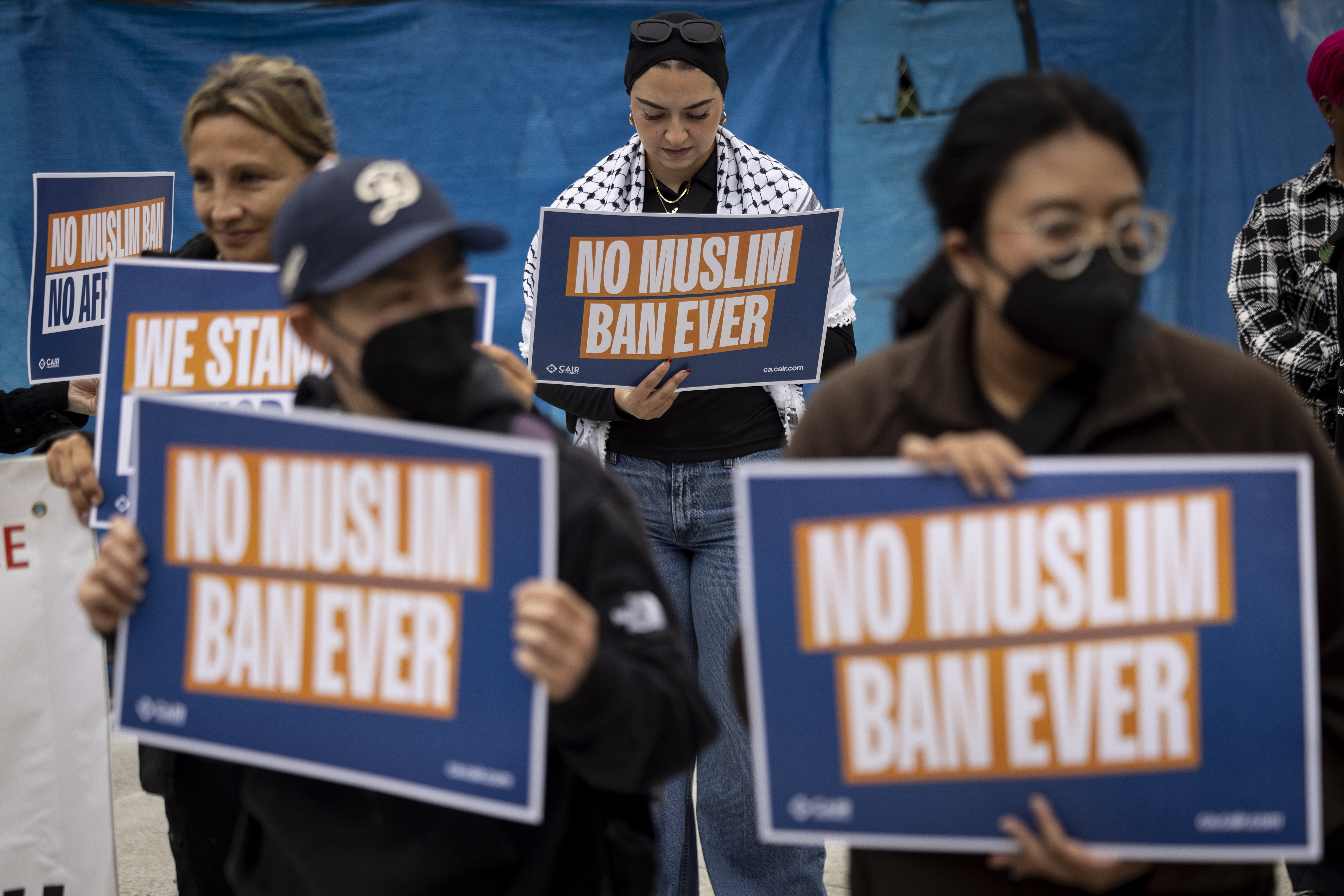
HOUSTON - An extensive travel ban issued by US President Donald Trump took effect on Monday amid growing chaos over the Trump administration's immigration enforcement.
Over the weekend, protesters clashed and faced off with National Guard troops in downtown Los Angeles during the demonstrations against immigration raids that swept across California. In New York City, demonstrators occupied the Trump Tower on Monday, demanding the release of immigrants detained in recent raids. Police arrested at least 20 of them after a standoff lasting about 20 minutes, local media reported.
ALSO READ: Trump signs proclamation banning travel from 12 countries
Trump signed a proclamation last week, fully banning the entry of nationals from 12 countries, namely Afghanistan, Chad, the Republic of the Congo, Equatorial Guinea, Eritrea, Haiti, Iran, Libya, Myanmar, Somalia, Sudan and Yemen, citing national security risks.
According to a release by the White House, these countries were found "to be deficient with regards to screening and vetting and determined to pose a very high risk to the United States."
Meanwhile, the proclamation partially restricts the entry of nationals from seven countries -- Burundi, Cuba, Laos, Sierra Leone, Togo, Turkmenistan and Venezuela.
READ MORE: US deploys Marines to LA as Trump backs arrest of California governor
"The restrictions and limitations imposed by the Proclamation are necessary to garner cooperation from foreign governments, enforce our immigration laws, and advance other important foreign policy, national security, and counterterrorism objectives," the White House said.
Exceptions to the ban include lawful permanent residents, existing visa holders, certain visa categories, and individuals whose entry serves US national interests.
During his first term, Trump announced a ban on travelers from seven countries, a policy that went through several iterations before it was upheld by the Supreme Court in 2018. Former President Joe Biden reversed the ban in 2021.


